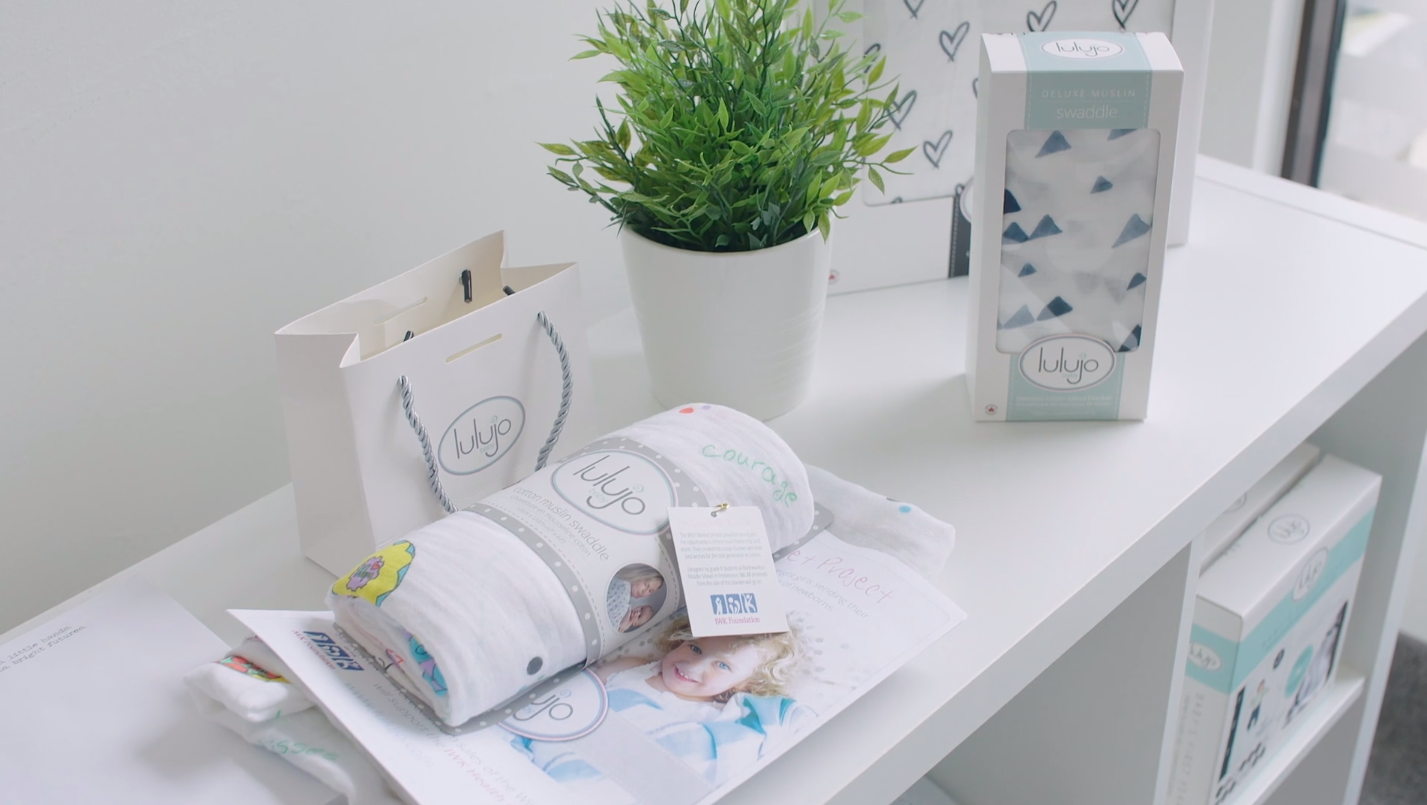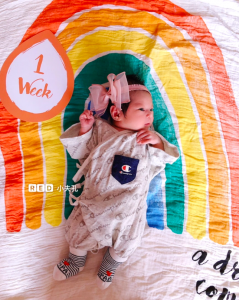
By 2016, Canadian entrepreneur Dawn Pottier had spent nine years growing her baby brand, Lulujo, from a single ring-sling carrier made in her native New Brunswick into one of the country’s most successful small businesses. So successful, in fact, Lulujo was invited to join the Canadian business delegation with Prime Minister Trudeau to China that September. But it wasn’t until she touched down in Hangzhou that the 43-year-old mother of two realized she was just getting started.
Trudeau was attending the annual Group of 20 government meeting, and on the agenda was a stop at Alibaba Group headquarters. Potter had already been struck by the vast potential of the China market after just a few days in the country. She knew that the rising spending power of Chinese consumers had created demand for niche, overseas products – products like hers. And the visit to Alibaba introduced her to the best way for an international small business to reach them: e-commerce.
“That’s when I realized there’s a whole other world out here, customers out here that will love our products,” Pottier says of her first Alibaba experience. “If it worked all over North America, then it would work in China.”
‘We’ll take 12 more.’
Pottier wasn’t always an entrepreneur. The idea for the product that would give Lulujo its start came up while she was on maternity leave from her project management job at a local IT-services company. Ahead of a family trip to Florida, Pottier sewed herself a ring sling when she couldn’t find one in her hometown of Fredericton. At the urging of friends, she took it to a local store to see if they’d be willing to sell her design. They agreed. Two weeks later, the store called.
WATCH: Lulujo Goes from Small-Town Canada to Success in China
“Those six sold, we’ll take 12 more,” she remembers them saying. “The idea that I made something people would buy was so exciting to me.”
Pottier took the ring sling to other stores to see if they, too, were interested. More orders followed. Soon enough, she was making ring slings for mom-and-pop shops throughout New Brunswick, leaving project management behind to start Lulujo, named after her two kids, Lulu and Jo. There was just one problem. Pottier didn’t know a thing about running her own business.
“There’s no course in entrepreneurship, in starting a baby brand,” she says. “You kind of have to go figure it out.”
Raising two kids and working out of her basement, Pottier was forced to teach herself how to manufacture her new products at scale. She had added a second product to her offering – muslin swaddling blankets – but she couldn’t find the material she needed to make them in New Brunswick. So, she googled “how to manufacturer muslin blankets in China.” Alibaba.com, Alibaba Group’s B2B marketplace, came up. She connected with a manufacturer she liked, but when he asked for an “MOQ” of 2000, she didn’t know how to respond – because she didn’t know what that meant. (She has since learned it means “minimum order quantity.”)
Eventually, Lulujo got picked up by Canada’s largest distributor of baby products, Kid Central. Pottier still needed a $1,000 loan from her father to cover the shipping cost of delivering $25,000 worth of her muslin swaddling blankets. But within a year, Lulujo products were in big-box stores across Canada. Not bad for someone who also had to google how to get proper UPC labels for her shipments.

“Lulujo is the little train that could,” Pottier says. “We were a small team, but everyone around us kept supporting us and taking us on.”
A Gateway into China
Pottier heard Jack Ma speak at a Gateway to China event Alibaba held in Detroit a year after her visit to Hangzhou. Hearing the Alibaba founder talk about the China opportunity for Canadian small businesses only served to inspire her more. She found a Tmall Partner, a third-party company that helps overseas businesses onboard to Alibaba’s e-commerce platforms.
“I liked the swaddling blanket a lot because I’m a mom,” says Sunny Sun, president of Uni Best, the TP that Pottier met that day. “But in China, few people know this category. So, I thought it was a new opportunity.”
Sun chose Tmall Global, Alibaba’s dedicated cross-border e-commerce marketplace, as the best way into China for Lulujo. The site allows overseas brands to sell to Chinese consumers without setting up a brick-and-mortar store in the country. Tmall Global is also seen as a good way for these still-unknown companies – in China, anyway – build brand awareness in their newest market.
The Tmall Global store went live just a few months later in December 2017. Sun supplemented the launch with an extensive marketing campaign, including videos and livestreaming to introduce the Lulujo brand to likely buyers in China. “They did all the work for us,” Pottier says of Uni Best.
Thanks to the marketing push, Pottier’s swaddling blanket was the first item to sell. Her line of “baby’s first year” products followed soon after. Pottier wanted to take things further, however: “We did so well on TMG, I thought, ‘How else do we grow in China?'”

That led her to another TP, Web Presence in China, which helped onboard her to Tmall Classic. The original Tmall site is a much bigger market than its cross-border peer, but it requires more from a seller if they want to join the platform. For example, WPIC had to help Lulujo obtain licenses to do business in China and trademarks for its products. But in return a brand gets access to new channels and new sources of revenue.
“Why not be leveraging all of what Alibaba offers to attack the market and grow her business?” says Joseph Cooke, who with his brother, Jacob, formed WPIC in 2005 to help international brands enter the China market.
quick check of the potential market and the niche that Potter’s company would occupy showed “there’s something here. It’s worth going after.” But the partnership is about more than just numbers. “It’s a really special relationship for us,” he says. “It’s really admirable to see her level of commitment, so it’s hard not to match that energy from our side.”
“She’s a dream partner to work with,” he says.
The Tmall store had its one-year anniversary in April, with Lulujo’s products for Tmall Classic customers shipping from WPIC’s logistics facility in the central city of Nanjing.
“We’ve got a big team wrapped around what she’s doing,” Cooke says. “The story sells itself, so we just need to get it out there as fast as we can.”
Lessons Learned
Since joining the Tmall platforms, Pottier has learned a lot about the China market.
Case in point: Floral prints may be huge in North America right now, but Tmall shoppers think they’re ugly. Also, packaging matters. If something is going to be given as a gift, as baby products often are, its wrapping is almost as important as the product itself. But in the U.S., a ribbon is good enough.
“China’s been the most complex to understand what’s going to work and what’s not going to work,” she says. “But once you learn what’s going to work, it works really well.”
Pottier chalks these lessons up to the many she’s learned in business over the past 10 years. She credits staying true to the brand as a guiding principle, along with great partners, a dedicated team and a focus on the products that fit the brand.
“It’s just one step at a time. It starts from one town, one province, one country to the rest of the world,” she says.




